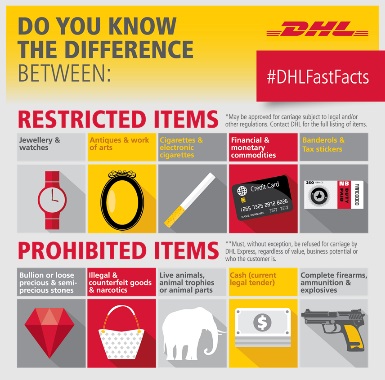In various contexts, from travel to shipping and public spaces, regulations are put in place to ensure safety, security, and compliance with legal standards. The concept of prohibited items plays a pivotal role in these regulations, outlining specific goods or substances that are forbidden due to potential risks, dangers, or legal restrictions. This article provides a comprehensive guide to understanding and navigating the list of prohibited items in different scenarios, shedding light on the reasons behind these restrictions and the potential consequences of non-compliance.
Airport Security and Travel:
Air travel involves stringent security measures to ensure the safety of passengers and aircraft. Prohibited items at airports are categorized to prevent potential threats. For more information, you can visit this link:
Common items on the list include:
Sharp Objects: Knives, box cutters, and other sharp objects are generally prohibited in carry-on luggage.
Firearms and Ammunition: Guns, bullets, and other related items are strictly regulated and must be declared and transported in compliance with airline and regulatory policies.
Explosive and Flammable Materials: Items such as fireworks, gasoline, and compressed gases are prohibited due to the potential risk of fire or explosion.
Liquids in Excess: Restrictions on carrying liquids, gels, and aerosols in containers exceeding a certain volume are in place to prevent the smuggling of harmful substances.
Sporting Goods: Certain sporting goods, like baseball bats and golf clubs, are considered potentially dangerous and may be restricted.
Understanding and adhering to these regulations is crucial to ensuring a smooth and secure travel experience. Violating these rules can result in confiscation of items, fines, and even legal consequences.
Postal and Shipping Regulations:
Shipping carriers, both domestic and international, have strict regulations on the transportation of goods to ensure safety, compliance, and the prevention of illicit activities. Prohibited items in shipping typically include:
Hazardous Materials: Substances deemed hazardous, such as explosives, corrosives, and flammable materials, are strictly prohibited.
Perishable Goods: Items that can spoil or decay during transit are often prohibited due to the risk of contamination.
Illegal Substances: Drugs, narcotics, and other controlled substances are strictly forbidden to prevent illegal trafficking.
Weapons and Firearms: Shipping firearms without proper authorization is prohibited, as is the shipping of other weapons.
Counterfeit Goods: Sending counterfeit or pirated items is against the law and can lead to legal consequences.
Understanding the shipping regulations and adhering to the list of prohibited items is essential for both individuals and businesses engaged in shipping goods. Failure to comply may result in packages being rejected, fines, and, in some cases, legal action.
Public Spaces and Events:
Public spaces, venues, and events often have their own set of regulations to ensure the safety and well-being of attendees. Prohibited items in these contexts may include:
Weapons: Sharp objects, firearms, and other potentially dangerous items are typically restricted.
Illegal Substances: Drugs and other controlled substances are prohibited to maintain a safe and controlled environment.
Large Bags and Backpacks: Some venues may restrict the size and type of bags allowed to enhance security and prevent the concealment of prohibited items.
Food and Beverages: Outside food and drinks may be prohibited to control the quality and safety of consumables within the venue.
Recording Devices: In some cases, recording devices may be restricted to protect intellectual property or the privacy of individuals.
Adherence to these regulations is vital to ensure the safety and security of all individuals attending public events. Venues often implement thorough security checks to enforce these prohibitions.
Online Marketplaces and Customs Regulations:
In the realm of e-commerce and international trade, understanding the list of prohibited items is essential to prevent legal issues, customs delays, and potential fines. Commonly prohibited items include:
Restricted or Controlled Substances: Different countries have varying regulations on the importation of medications, plants, and certain chemicals.
Endangered Species Products: Items made from endangered animals or plants may be prohibited to combat illegal wildlife trade.
Counterfeit Goods: Many countries have strict regulations against importing or selling counterfeit or pirated items.
Weapons and Military Equipment: The international trade of weapons, military equipment, and related items is heavily regulated.
Tobacco and Alcohol: Import restrictions on tobacco and alcohol products vary, and compliance with local laws is crucial.
Navigating customs regulations and adhering to the list of prohibited items is essential for individuals and businesses engaged in international trade. Failure to comply can result in seized shipments, fines, and legal consequences.

Conclusion:
Understanding and adhering to the list of prohibited items is crucial in various contexts, from travel and shipping to public spaces and international trade. These restrictions are in place to ensure safety, security, and compliance with legal standards. Ignoring these regulations can lead to severe consequences, including fines, legal action, and potential harm to individuals and communities. Therefore, whether you are a traveler, shipper, event attendee, or engaged in international trade, taking the time to familiarize yourself with and follow the list of prohibited items is an essential aspect of responsible and law-abiding behavior.